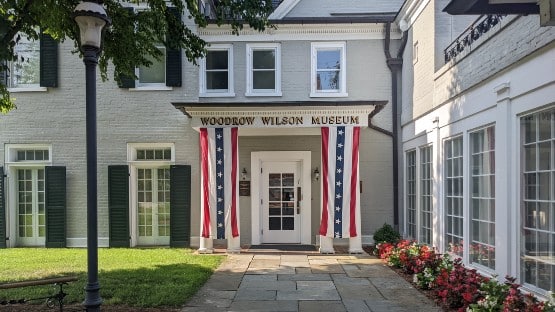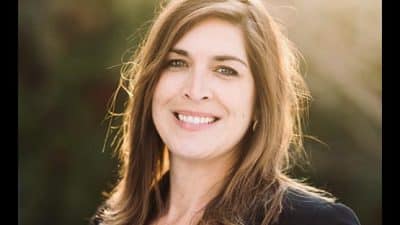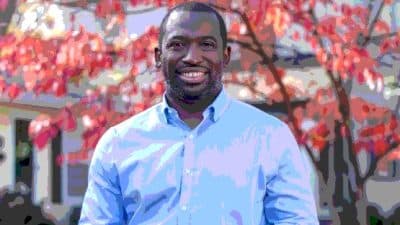Story by Chris Graham
If independent Russ Potts had his way, he would be in every candidate debate that his gubernatorial-race opponents Tim Kaine and Jerry Kilgore are in – no questions asked.
A guaranteed spot in the Super Bowl of the 2005 Virginia debate season – the Oct. 9 debate in Richmond that will be broadcast live to a statewide television audience – would suffice, of course.
Just one problem there: Potts isn’t guaranteed a place in that debate.
According to rules for inclusion in the debate put forth by the University of Virginia Center for Politics and agreed to by the Kaine and Kilgore campaigns, Potts will have to meet the standard established by the Commission on Presidential Debates for independent and third-party candidates to be given a lectern – namely, 15 percent support in the polls.
That Potts, whose support was measured at 9 percent in a July poll conducted by Mason-Dixon, could be left on the outside looking is very much a sore point for the Winchester state senator.
“I earned my way into this debate. The day that we turned in our 24,000 signatures, we earned it. I don’t want any false benchmarks or thresholds. We earned our way into this debate,” Potts told The Augusta Free Press.
“I’ve said all along is that the threshold should be who gets on the ballot. If you get your petitions signed, and get on the ballot, then you’re a viable candidate,” Potts said.
Former independent presidential candidate John Anderson – who was excluded from a key 1980 debate at the insistence of incumbent president Jimmy Carter – agrees with Potts on that point.
“This standard is of questionable validity, certainly. This is the case at the national level, at the presidential level, and it is as well in the gubernatorial race in Virginia,” Anderson told the AFP. “It seems that the result of this is going to be to keep voters from getting to know one of the candidates in the race. It’s unfair. It’s unfair to the voters of Virginia. It’s unfair to Mr. Potts. And it’s unfair to the democratic process.”
Anderson took part in the American University-led Appleseed Commission on Electoral Reform effort to come up with a fairer standard for debate inclusion that led to the suggestion that the 5 percent threshold that is used at the federal level to determine eligibility for presidential-campaign matching funds be used in the place of the 15 percent cutoff.
Jamie Raskin, an American University law professor who worked with Anderson on the Appleseed Commission – and who represented Ross Perot in his legal challenge of the Commission on Presidential Debates decision to exclude the independent from the 1996 debates – said the consensus of commission members was originally to leave the polls out entirely.
“The feeling was that if there are few enough candidates in a race to have a reasonable debate, then everybody in the race, everybody who is on the ballot, should be in the debate,” Raskin told the AFP.
This is the same standard, incidentally, that the parties themselves follow in their own nomination races, Raskin noted. From congressional races to state-level contests to the battle for a presidential nod, debates featuring four, five and even 10 or more nomination contenders are not at all uncommon.
“But then when we get to the general election, the argument changes. People can’t focus on more than two candidates at one time,” Raskin said.
“The 5 percent standard that we adopted is based on the federal statutory definition of the level of support that a candidate needs to get in order to qualify for public financing. Despite the vagueries and the uncertainties that come with the reliance on public-opinion polls, 5 percent did come across as being more rational, certainly than 15 percent, which was just pulled out of the thin air,” Raskin said.
The 5 percent threshold also eliminates so-called “nuisance candidates” from the mix, Anderson said.
“And in the case of Mr. Potts, from all indications, he is anything but a nuisance candidate,” Anderson said. “He’s somebody who has been involved in the political process in Virginia for many years. He already has significant support at the polls.
“If he or any other candidate can demonstrate that 5 percent of the voters want them on the ballot and plan to vote for them in November, that’s something that you can’t ignore,” Anderson said.
Tucker Martin, a spokesman for Kilgore, the Republican Party nominee, who had opposed Potts’ inclusion in gubernatorial-race debates before agreeing to the Center for Politics compromise earlier this month, countered that “the people on the stage should be candidates with a legitimate chance of winning.”
“And that’s what the presidential standard was created, of course, to delineate,” Martin told the AFP.
“We were happy to agree to the rules of the debate as requested by Mr. Sabato and the Center for Politics. It was their decision what standard they used, but certainly the presidential standard makes sense. Fifteen percent seems to be fair in establishing if you’re a credible candidate,” Martin said.
Delacey Skinner, a spokesperson for Kaine, the Democratic Party nominee, said the Kaine campaign “respects the prerogative of the organizer to determine how they want to conduct the debate.”
“We’ve obviously accepted debates that Russ has been invited to that didn’t have that limit to it,” said Skinner, noting Kaine’s decision this week to agree to a debate with Potts on Sept. 13 in front of the Fairfax County Chamber of Commerce following a debate already on the schedule pitting Kaine against Kilgore.
“This is how the Center for Politics has decided to conduct this debate, and we do plan on participating,” Skinner told the AFP.
Potts, for his part, is intent on making the whole issue a moot one by the time Oct. 9 rolls around.
“We’re going to be at 22 or 23 in October, and then it’s going to be a horse race. I feel more strongly now than ever that we’re going to win this thing,” Potts said.










